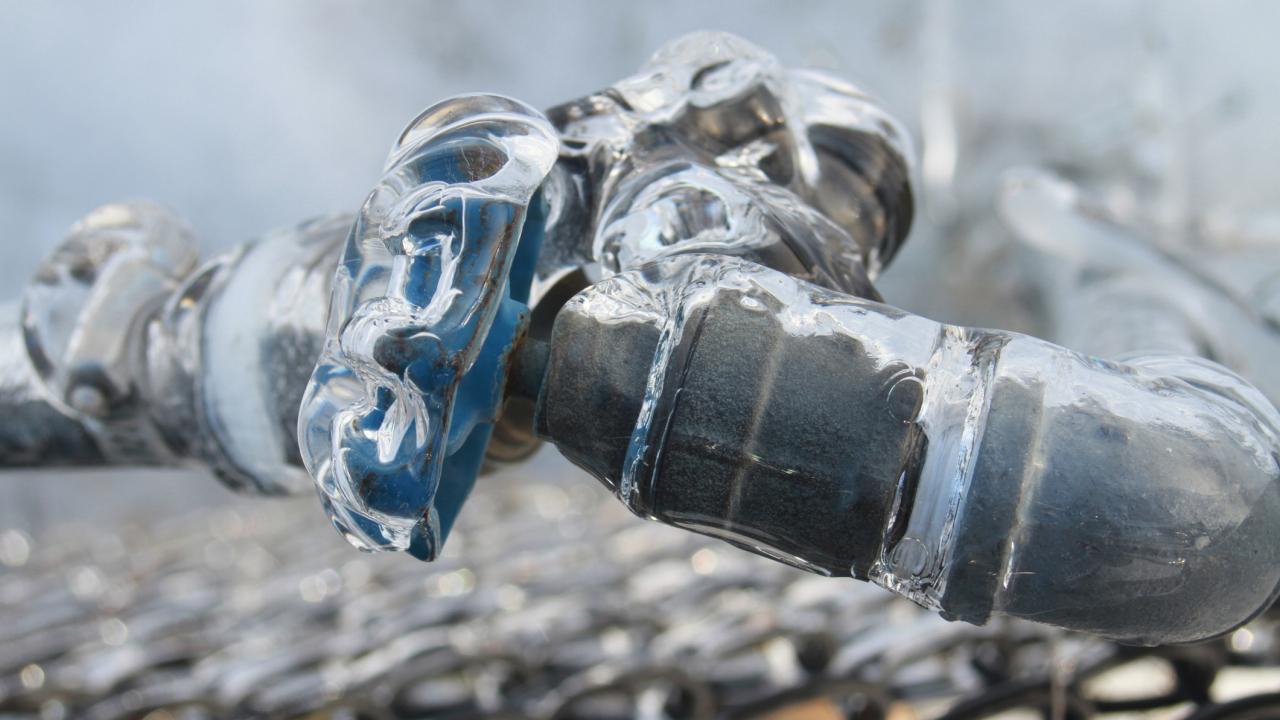Tips to Avoid Frozen Pipes in Cold Weather: Expert Guidance
Tips to Avoid Frozen Pipes in Cold Weather: Expert Guidance
Blog Article
Right here on the next paragraphs you will find a lot of wonderful news around 6 Ways to Prevent Frozen Pipes.

Winter can ruin your pipes, especially by freezing pipes. Below's how to stop it from taking place and what to do if it does.
Intro
As temperatures decrease, the threat of frozen pipelines rises, potentially resulting in pricey repair services and water damages. Recognizing how to prevent icy pipes is crucial for house owners in cool climates.
Recognizing Frozen Pipes
What triggers pipelines to ice up?
Pipes freeze when subjected to temperature levels below 32 ° F (0 ° C) for prolonged periods. As water inside the pipes freezes, it expands, putting pressure on the pipe walls and potentially creating them to break.
Threats and damages
Icy pipes can lead to water interruptions, home damage, and costly fixings. Burst pipelines can flooding homes and cause considerable architectural damages.
Indicators of Frozen Pipes
Recognizing icy pipes early can avoid them from bursting.
Exactly how to recognize frozen pipes
Search for reduced water flow from taps, unusual odors or noises from pipelines, and visible frost on revealed pipes.
Avoidance Tips
Insulating prone pipelines
Cover pipes in insulation sleeves or utilize warm tape to shield them from freezing temperatures. Focus on pipelines in unheated or outside locations of the home.
Home heating strategies
Keep interior areas adequately heated, specifically locations with plumbing. Open up closet doors to enable warm air to distribute around pipelines under sinks.
Shielding Outside Pipes
Garden pipes and outdoor faucets
Detach and drain pipes garden pipes prior to winter. Install frost-proof spigots or cover outside taps with shielded caps.
What to Do If Your Pipelines Freeze
Immediate activities to take
If you believe icy pipelines, maintain taps open to soothe stress as the ice melts. Make use of a hairdryer or towels taken in warm water to thaw pipelines slowly.
Long-Term Solutions
Structural changes
Take into consideration rerouting pipes far from exterior wall surfaces or unheated locations. Include added insulation to attic rooms, basements, and crawl spaces.
Updating insulation
Buy top notch insulation for pipelines, attics, and wall surfaces. Proper insulation assists preserve constant temperatures and decreases the threat of frozen pipelines.
Verdict
Protecting against frozen pipelines requires aggressive measures and fast responses. By comprehending the reasons, signs, and safety nets, homeowners can safeguard their pipes throughout winter.
Helpful Tips to Prevent Frozen Pipes this Winter
UNDERSTANDING THE BASICS: WHY PIPES FREEZE AND WHY IT’S A PROBLEM
Water freezing inside pipes is common during the winter months, but understanding why pipes freeze, and the potential problems it can cause is crucial in preventing such incidents. This section will delve into the basics of why pipes freeze and the associated problems that may arise.
THE SCIENCE BEHIND FROZEN PIPES
When water reaches freezing temperatures, it undergoes a physical transformation and solidifies into ice. This expansion of water as it freezes is the primary reason pipes can burst. As the water inside the pipe freezes, it expands, creating immense pressure on the walls. If the pressure becomes too great, the pipe can crack or rupture, leading to leaks and water damage.
FACTORS THAT CONTRIBUTE TO PIPE FREEZING
Low Temperatures: Extremely cold weather, especially below freezing, increases the risk of pipes freezing. Uninsulated or Poorly Insulated Pipes: Pipes located in unheated areas, such as basements, crawl spaces, or attics, are more prone to freezing. Insufficient insulation or lack of insulation altogether exacerbates the problem. Exterior Wall Exposure: Pipes running along exterior walls are susceptible to freezing as they encounter colder temperatures outside. Lack of Heating or Temperature Regulation: Inadequate heating or inconsistent temperature control in your home can contribute to frozen pipes. PROBLEMS CAUSED BY FROZEN PIPES
- Pipe Bursting: As mentioned earlier, the expansion of water as it freezes can cause pipes to burst, resulting in significant water damage.
- Water Damage: When pipes burst, it can lead to flooding and water damage to your property, including walls, ceilings, flooring, and personal belongings.
- Structural Damage: Prolonged exposure to water from burst pipes can compromise the structural integrity of your home, leading to costly repairs.
- Mold and Mildew Growth: Excess moisture from water damage can create a favorable environment for mold and mildew growth, posing health risks to occupants.
- Disrupted Water Supply: Frozen pipes can also result in a complete or partial loss of water supply until the issue is resolved.
WHY CERTAIN PIPES ARE MORE PRONE TO FREEZING
- Location: Pipes located in unheated or poorly insulated areas, such as basements, crawl spaces, attics, or exterior walls, are at higher risk of freezing.
- Exterior Pipes: Outdoor pipes, such as those used for irrigation or exposed plumbing, are particularly vulnerable to freezing as they are directly exposed to the elements.
- Supply Lines: Pipes that carry water from the main water supply into your home, including the main water line, are critical to protect as freezing in these lines can affect your entire plumbing system.
- Underground Pipes: Pipes buried underground, such as those connected to sprinkler systems or outdoor faucets, can be susceptible to freezing if not properly insulated.
https://busybusy.com/blog/helpful-tips-to-prevent-frozen-pipes-this-winter/

As a serious reader about Preventing and dealing with frozen pipes, I assumed sharing that piece was a good thing. Are you aware of somebody else who is truly interested in the niche? Please feel free to promote it. We take joy in reading our article about How To Avoid Freezing Pipes.
Call Today Report this page